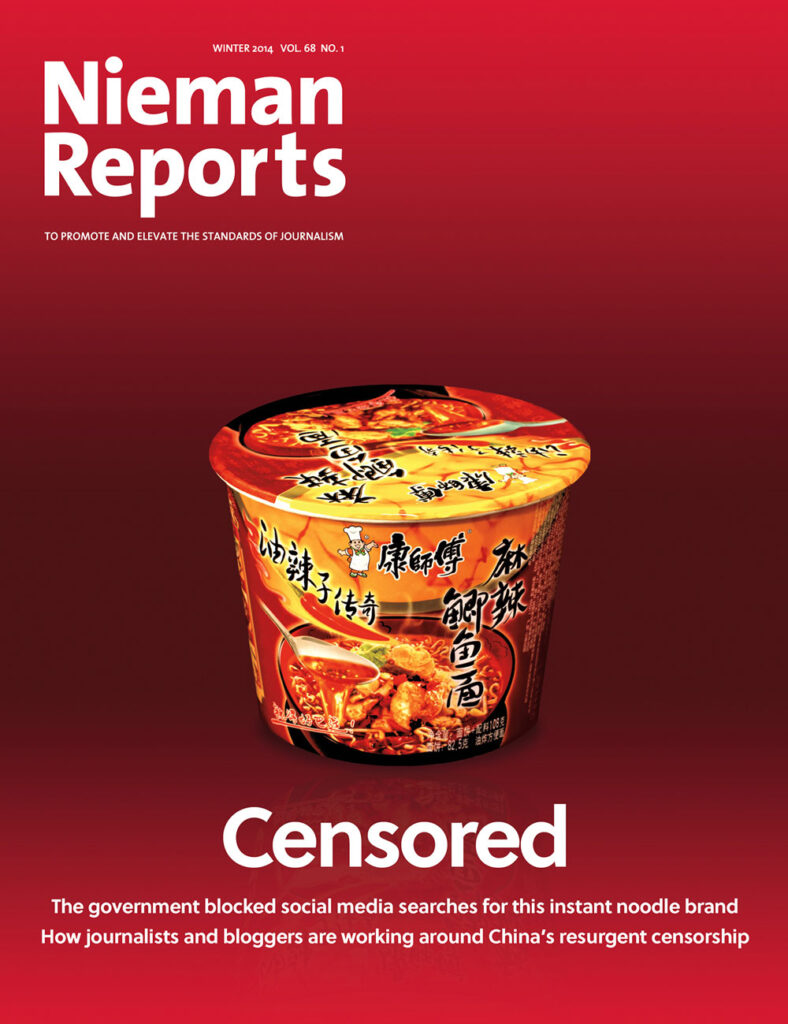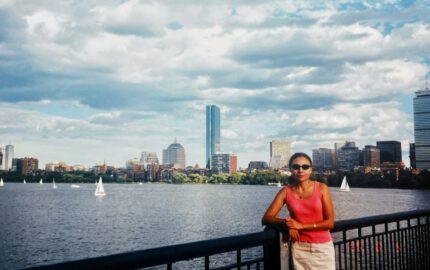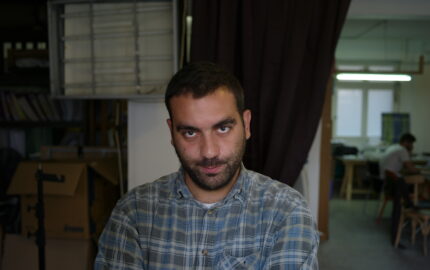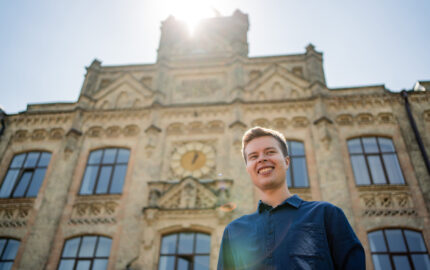Soon after starting high school in Tg. Mures, the small city in Romania’s Transylvania region where I grew up, I began skipping classes.
I left the house every morning, hid around my apartment building until my parents, both doctors, went to work, then returned home to read. Sometimes it was sci-fi by Asimov or Herbert; other times it was conspiracy thrillers or my mother’s Sandra Brown books. My parents learned of my exploits from the school nurse, who was worried about the many diseases listed on the (faked) medical absence notes I brought in. Nobody in the high school’s history had skipped as many classes as I had. My parents didn’t appreciate this record; in fact, I’d never seen either of them so disappointed. Born into working class families during communism, they were first-generation physicians who worked long hours to create a better life for my brother and me. They dreamed we would follow them into medicine, maybe even create a family dynasty. Even if we didn’t do that, they didn’t want us to fail.
I failed, and I tried to explain why. Something happened when I started ninth grade; all the new students and teachers terrified me. Sometimes I stuttered my way through a sentence, but shame at doing so overwhelmed me and I shut up again.
I felt alone. So I skipped class after class.
Now that my parents knew, I didn’t want to let them down, so I returned to school. When ninth grade ended, I attended the school summer camp, where my journalistic adventure began. A friend and I published a daily bulletin of news and gossip.
The kids loved it. When we returned to school, we started a weekly paper, called The Voice. By the time we stopped, 60 issues later, we were up to 32 pages, we had been summoned to the principal’s office many times, and we had a few hundred loyal readers.
I had found a voice and maybe even a profession.
In 1999 I started journalism school in Bucharest, finding refuge from the unwelcoming city in a web site I started with a university colleague. Under pseudonyms we sounded off on everything from alternative rock to books to the broken politics of pre-European Union Romania.
In my junior year I took part in a program taught by American journalists. They did something our Romanian teachers hadn’t—they made us go out into the street and report. This showed me a side of journalism I knew little about. Journalism done not through raising your own voice, but through letting the voices of others come through.
I wanted to learn how to do it better, and that’s what brought me to the Missouri School of Journalism, where I got my M.A., and then on to jobs in Washington, D.C., and Boston. I learned how to make journalism that was both relevant and interesting, and found guidelines to live by—most listed in my personal Bible, “The Elements of Journalism,” co-authored by former Nieman curator Bill Kovach.
I also found the journalism that best fit me—narrative nonfiction, deeply reported and carefully written stories of people that reflect our common humanity, our joys and struggles. I later discovered a quote by Joan Didion that remains my guiding principle: “We tell ourselves stories in order to live.” We tell stories to connect, to understand, to compare, to plan, to escape, to change, to heal.
I decided that doing deeply reported journalism about the way we live was even more necessary in Romania, a former Communist country where trust is in short supply and where telling intimate stories is seen as irrelevant.
I have been doing that for almost seven years, as a writer, an editor, a teacher, and entrepreneur. In 2009, together with other journalists, I started Decât o Revista, an independent magazine that tells the stories of modern day Romania, stories about prisoner re-integration, Paralympic sports, human rights education, Roma activism. We continue to struggle and have by no means figured out a business model. In April, just as I learned I got the Nieman, our bank account had dropped to $100.
We might make it another year; we might not. But surviving was never the goal. What we want is to give voice to stories nobody has heard, to people who’ve never spoken up, because the stories we tell about our world and our lives are what bind us. They bring hope where before there was fear, joy where before there was pain. I have felt this in my own life, and I have seen it in the lives of others.
Cristian Lupsa, a 2014 Nieman Fellow, is editor of Decât o Revista
I left the house every morning, hid around my apartment building until my parents, both doctors, went to work, then returned home to read. Sometimes it was sci-fi by Asimov or Herbert; other times it was conspiracy thrillers or my mother’s Sandra Brown books. My parents learned of my exploits from the school nurse, who was worried about the many diseases listed on the (faked) medical absence notes I brought in. Nobody in the high school’s history had skipped as many classes as I had. My parents didn’t appreciate this record; in fact, I’d never seen either of them so disappointed. Born into working class families during communism, they were first-generation physicians who worked long hours to create a better life for my brother and me. They dreamed we would follow them into medicine, maybe even create a family dynasty. Even if we didn’t do that, they didn’t want us to fail.
I failed, and I tried to explain why. Something happened when I started ninth grade; all the new students and teachers terrified me. Sometimes I stuttered my way through a sentence, but shame at doing so overwhelmed me and I shut up again.
I felt alone. So I skipped class after class.
Now that my parents knew, I didn’t want to let them down, so I returned to school. When ninth grade ended, I attended the school summer camp, where my journalistic adventure began. A friend and I published a daily bulletin of news and gossip.
The kids loved it. When we returned to school, we started a weekly paper, called The Voice. By the time we stopped, 60 issues later, we were up to 32 pages, we had been summoned to the principal’s office many times, and we had a few hundred loyal readers.
I had found a voice and maybe even a profession.
In 1999 I started journalism school in Bucharest, finding refuge from the unwelcoming city in a web site I started with a university colleague. Under pseudonyms we sounded off on everything from alternative rock to books to the broken politics of pre-European Union Romania.
In my junior year I took part in a program taught by American journalists. They did something our Romanian teachers hadn’t—they made us go out into the street and report. This showed me a side of journalism I knew little about. Journalism done not through raising your own voice, but through letting the voices of others come through.
I wanted to learn how to do it better, and that’s what brought me to the Missouri School of Journalism, where I got my M.A., and then on to jobs in Washington, D.C., and Boston. I learned how to make journalism that was both relevant and interesting, and found guidelines to live by—most listed in my personal Bible, “The Elements of Journalism,” co-authored by former Nieman curator Bill Kovach.
I also found the journalism that best fit me—narrative nonfiction, deeply reported and carefully written stories of people that reflect our common humanity, our joys and struggles. I later discovered a quote by Joan Didion that remains my guiding principle: “We tell ourselves stories in order to live.” We tell stories to connect, to understand, to compare, to plan, to escape, to change, to heal.
I decided that doing deeply reported journalism about the way we live was even more necessary in Romania, a former Communist country where trust is in short supply and where telling intimate stories is seen as irrelevant.
I have been doing that for almost seven years, as a writer, an editor, a teacher, and entrepreneur. In 2009, together with other journalists, I started Decât o Revista, an independent magazine that tells the stories of modern day Romania, stories about prisoner re-integration, Paralympic sports, human rights education, Roma activism. We continue to struggle and have by no means figured out a business model. In April, just as I learned I got the Nieman, our bank account had dropped to $100.
We might make it another year; we might not. But surviving was never the goal. What we want is to give voice to stories nobody has heard, to people who’ve never spoken up, because the stories we tell about our world and our lives are what bind us. They bring hope where before there was fear, joy where before there was pain. I have felt this in my own life, and I have seen it in the lives of others.
Cristian Lupsa, a 2014 Nieman Fellow, is editor of Decât o Revista



